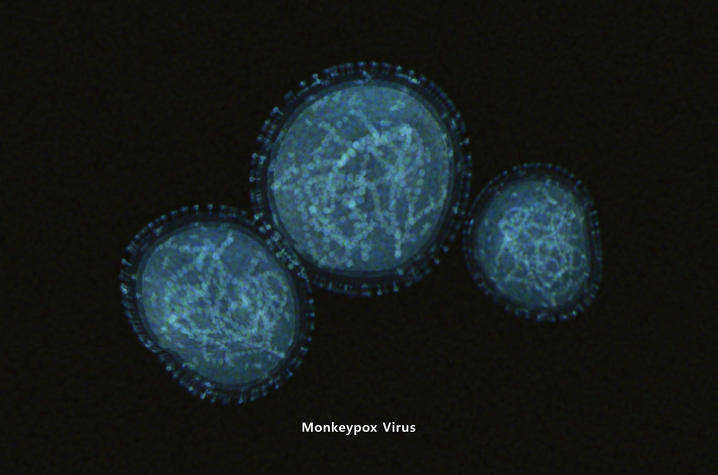Monkeypox: what students need to know

LEXINGTON, Ky. (Aug. 15, 2022) — The White House recently declared the ongoing spread of monkeypox in the U.S. a public health emergency, and with cases now confirmed in Kentucky, the University of Kentucky is closely monitoring the situation. While the current risk to the public remains low, as we begin the 2022-23 academic year it’s important to be vigilant and take precautions to protect ourselves and others within the campus community.
What is monkeypox?
Monkeypox is a viral disease that can cause flu-like symptoms and a rash. Symptoms start with chills, fever, aches and swollen lymph nodes. This is followed by a rash that progresses through several stages until scabs form before it heals. The incubation period is 7-17 days on average. The rash can initially look like pimples or blisters and may be painful or itchy.
Individuals are infectious from the time symptoms start until the rash has completely healed. Monkeypox is considered to be infectious until the last scab has fallen off. Most people recover in two to four weeks without treatment, but in some cases the rash can be extremely painful.
How monkeypox spreads:
Monkeypox is spread via close prolonged contact with infected body fluids and skin lesions including:
- Direct contact with monkeypox rash, scabs, or body fluids from a person exhibiting symptoms, as well as contact with respiratory secretions. This can happen during intimate contact including sex and kissing/prolonged skin-to-skin contact with someone who has monkeypox lesions.
- Handling contaminated materials like clothing, bedding, or towels that have been used by someone with active monkeypox disease.
- It is also possible to get monkeypox from the bite of an infected animal, or by manipulating sick animals.
What you can do to prevent the spread:
- Avoid close, skin-to-skin contact with people who have a rash that looks like monkeypox. While monkeypox is not considered a sexually transmitted disease, it can be transmitted through intimate contact including sex. If you are sexually active, there are steps you can take to reduce your chances of being exposed.
- Avoid contact with objects and materials that a person with monkeypox has used.
- Wash your hands often with soap and water or use an alcohol-based hand sanitizer.
- If you find yourself in an area where monkeypox has been detected, avoid contact with animals that are sick or found dead.
If you think you have been exposed to monkeypox or have symptoms, isolate from others until you can be assessed/tested by a health care professional. Examples of monkeypox lesions can be found here.
As the state’s flagship, land-grant institution, the University of Kentucky exists to advance the Commonwealth. We do that by preparing the next generation of leaders — placing students at the heart of everything we do — and transforming the lives of Kentuckians through education, research and creative work, service and health care. We pride ourselves on being a catalyst for breakthroughs and a force for healing, a place where ingenuity unfolds. It's all made possible by our people — visionaries, disruptors and pioneers — who make up 200 academic programs, a $476.5 million research and development enterprise and a world-class medical center, all on one campus.




